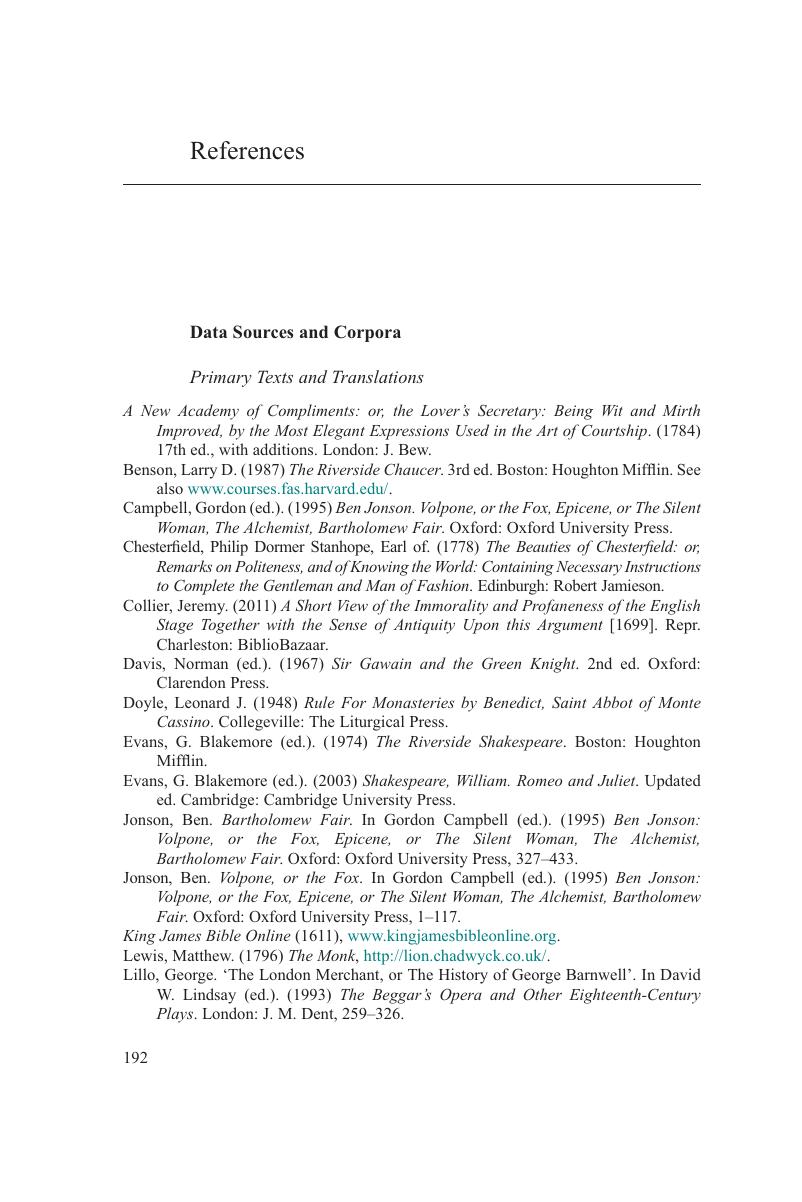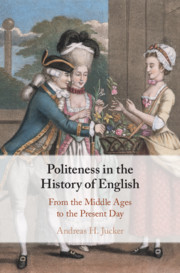Book contents
- Politeness in the History of English
- Politeness in the History of English
- Copyright page
- Contents
- Figures
- Tables
- Preface
- 1 Exploring Politeness in the History of English
- 2 Research Methods and Data Problems
- 3 Medieval Britain
- 4 Terms of Address in Middle English
- 5 Renaissance and Early Modern England
- 6 Terms of Address in Early Modern English
- 7 The Eighteenth Century: The Age of Politeness
- 8 The Eighteenth Century: Educational Literature
- 9 The Rise (and Fall) of Non-imposition Politeness
- 10 Conclusion: Politeness, Manners and Dissimulation
- References
- Index
- References
References
Published online by Cambridge University Press: 27 March 2020
- Politeness in the History of English
- Politeness in the History of English
- Copyright page
- Contents
- Figures
- Tables
- Preface
- 1 Exploring Politeness in the History of English
- 2 Research Methods and Data Problems
- 3 Medieval Britain
- 4 Terms of Address in Middle English
- 5 Renaissance and Early Modern England
- 6 Terms of Address in Early Modern English
- 7 The Eighteenth Century: The Age of Politeness
- 8 The Eighteenth Century: Educational Literature
- 9 The Rise (and Fall) of Non-imposition Politeness
- 10 Conclusion: Politeness, Manners and Dissimulation
- References
- Index
- References
Summary

- Type
- Chapter
- Information
- Politeness in the History of EnglishFrom the Middle Ages to the Present Day, pp. 192 - 207Publisher: Cambridge University PressPrint publication year: 2020

